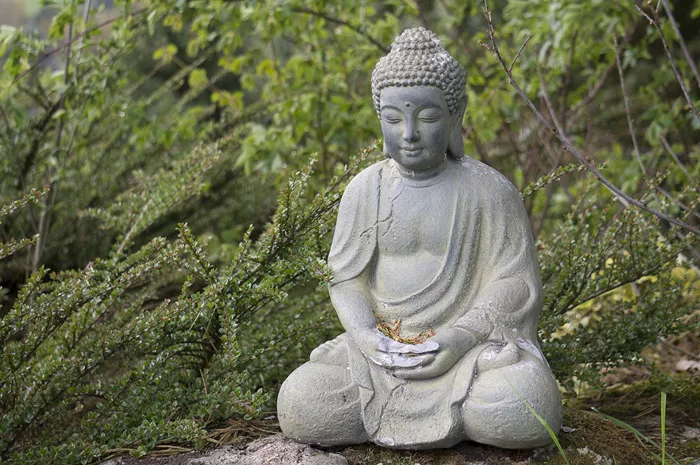Buddhism is a spiritual tradition that has been practiced for thousands of years. It is rooted in the teachings of Siddhartha Gautama, also known as the Buddha. The path of a Buddhist is one of mindfulness, meditation, and wisdom. One of the key figures in Buddhism is the monk. But the question arises: can monks be Buddhists? In this article, we will explore the role of monks in Buddhism, their lifestyle, and the connection between monks and the Buddhist path. We will also look at how monks embody the essence of Buddhism.
The Role of Monks in Buddhism
Monks play a significant role in Buddhism. They dedicate their lives to the study and practice of Buddhist teachings. In fact, the term “monk” refers to individuals who have chosen to follow the monastic path and have renounced worldly possessions. This decision is made in order to focus entirely on spiritual growth and the pursuit of enlightenment.
Buddhist monks live according to strict codes of conduct. These codes include vows to live a simple life, to be celibate, and to practice meditation regularly. They often live in monasteries or temples, where they engage in prayer, study, and communal activities. Monks are revered in many Buddhist communities, as they are seen as living examples of the teachings of the Buddha.
Monks as Practitioners of Buddhism
Can monks be Buddhists? Yes, monks are Buddhists by nature. They follow the teachings of the Buddha and dedicate their lives to understanding the nature of existence. Through their practices, they aim to reach enlightenment or Nirvana, the ultimate goal in Buddhism.
Monks practice the core teachings of Buddhism, including the Four Noble Truths and the Noble Eightfold Path. The Four Noble Truths describe the nature of suffering and its cessation. The Noble Eightfold Path provides a guide to living a life that leads to the end of suffering. These teachings form the foundation of a monk’s daily life and spiritual practice.
Buddhist Monk Lifestyle
The lifestyle of a Buddhist monk is unique and focused on spiritual development. Monks live a life of simplicity and discipline, free from the distractions of modern society. They do not own material possessions and often rely on the support of the lay community for food, shelter, and other necessities.
Daily Routine of a Buddhist Monk
A typical day for a Buddhist monk begins early in the morning. They wake up before dawn for meditation and chanting. Meditation is central to the monk’s life, as it helps them develop mindfulness and concentration. Monks often meditate for several hours each day, focusing on their breath or other meditation techniques.
In addition to meditation, monks spend time studying Buddhist scriptures and engaging in discussions with fellow monks. This intellectual aspect of monastic life is important for deepening their understanding of the Dharma, the teachings of the Buddha. Monks may also participate in ceremonies, offer guidance to lay practitioners, and engage in acts of charity.
The Buddhist Monk Outfit
The traditional outfit of a Buddhist monk is simple yet symbolic. Monks wear robes that are often made from cloth that is dyed in shades of orange, brown, or maroon. The color and style of the robes can vary depending on the region and sect of Buddhism, but the simplicity of the outfit is meant to reflect the monk’s renunciation of worldly desires.
In many Buddhist traditions, monks also carry a begging bowl. This bowl is used to collect food from the lay community, symbolizing the interdependence between monks and lay people. The robe and the begging bowl are reminders of the monk’s commitment to the path of simplicity and non-attachment.
Symbolism of the Monk’s Robe
The robe worn by monks holds deep spiritual meaning. The colors of the robes are symbolic of the monk’s commitment to the Buddhist path. For example, the color orange represents the fire of wisdom, while maroon is associated with humility and simplicity. The robe is a visible reminder that the monk has renounced material possessions and is focused on the pursuit of enlightenment.
Can Monks Be Buddhists? The Connection Between the Two
Monks and Buddhists share the same goal: to achieve enlightenment and free themselves from the cycle of birth and death. While all monks are Buddhists, not all Buddhists are monks. The monastic lifestyle is one of the most dedicated paths within Buddhism, but there are many ways to practice the teachings of the Buddha.
Monks embody the teachings of Buddhism through their daily lives. Their actions, attitudes, and way of life reflect the core principles of Buddhism, such as compassion, mindfulness, and wisdom. Through their practice, monks show what it means to be a true follower of the Buddha.
The Monastic Path and the Lay Path
In Buddhism, there are two main paths: the monastic path and the lay path. While monks dedicate their lives to the pursuit of enlightenment, lay Buddhists live in the world and practice Buddhism while balancing their family and professional lives. Both paths are valid, and both contribute to the broader Buddhist community.
The key difference between the two paths is the level of commitment. Monks follow a more disciplined and ascetic lifestyle, while lay Buddhists engage in spiritual practice within the context of their daily lives. Both paths are essential for the spread and preservation of Buddhism.
Conclusion
In conclusion, monks are indeed Buddhists. They are dedicated practitioners who have chosen a life of renunciation in order to fully dedicate themselves to the teachings of the Buddha. Through their lifestyle, their meditation, and their actions, monks embody the essence of Buddhism.
Buddhist monks live a life of simplicity, mindfulness, and wisdom, following the Noble Eightfold Path and striving for enlightenment. Their commitment to the Buddhist path is a powerful example for all Buddhists, whether they are monks or laypeople. In the end, being a Buddhist is not limited to any one lifestyle; it is about living in accordance with the teachings of the Buddha and striving for a life free of suffering.

